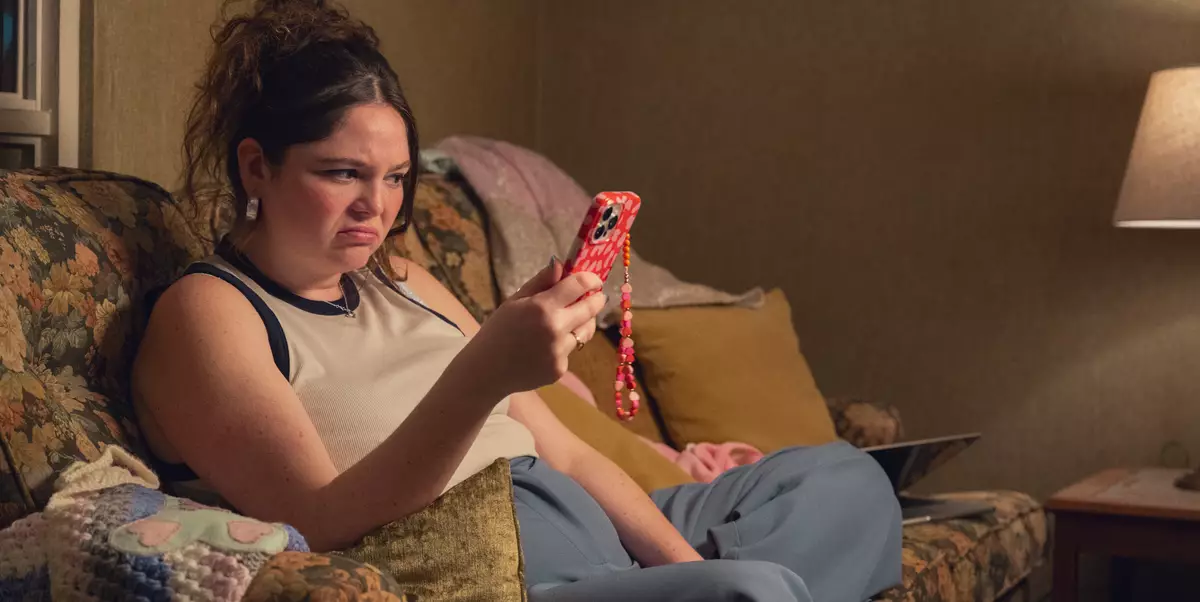Traditionally, television narratives tend to favor neat, predictable conclusions—couples meet, fall in love, and live happily ever after. Yet, “Too Much” challenges this tired trope by pivoting into the territory of real, imperfect relationships. The series’ ending, showcasing a surprise courthouse wedding, was deliberately provocative—an invitation to explore what happens after the “happily ever after.” As series creator Lena Dunham suggests, this marriage marks the beginning rather than the conclusion of Jess and Felix’s story. Such a narrative shift demands courage and authenticity, qualities often absent from mainstream romantic comedies. It’s inspiring to see a show willing to delve into the messiness of marriage—the negotiations, misunderstandings, and evolving identities that shape genuine partnerships. This approach resonates because it refuses to sanitize or idealize love, instead presenting it as an ongoing process of negotiation and growth. If “Too Much” embraces this perspective in Season 2, it could redefine how relationships are portrayed on television, transforming love stories from fairy tales into complex human experiences.
Anticipating a Bolder, More Nuanced Second Season
While Netflix has yet to officially renew “Too Much,” the enthusiasm among the cast and crew indicates strong confidence in its future. Megan Stalter’s comments illuminate a desire to explore the aftermath of their wedding, probing questions like: What does commitment really mean? How do two people navigate shared lives amid personal baggage and unresolved issues? Dunham’s statement about not controlling the show’s ending underscores a broader industry truth—creators often find themselves at the mercy of network decisions and commercial considerations. But what excites me is the potential for a second season that refuses safe storytelling, instead embracing the unpredictability of real relationships. These characters—who have already faced their fair share of drama—would have the opportunity to unpack their pasts and reconsider their futures. The narrative could shift from the initial “meet cute” to an authentic exploration of marriage, illustrating that love isn’t static but an ongoing journey full of surprises, setbacks, and breakthroughs.
The Raw Potential of an Authentic Marriage Story
Most romantic series gloss over the struggles that inevitably come with long-term commitment, favoring moments of lightheartedness over conflict. “Too Much” offers a chance to buck that trend by portraying a marriage that is unromantic at times, complicated at others, and ultimately real. Dunham’s intention to leave audiences with “lingering questions” signals her desire for viewers to see these characters as multi-dimensional—flawed, evolving, and genuinely human. The show’s open-ended finale is less a conclusion and more an invitation—to imagine the turbulence and tenderness that lie ahead. Bumbling through the early stages of marriage, Jess and Felix could confront their insecurities, misunderstandings, and aspirations, revealing that the true story of love is often found in resilience rather than perfection. This perspective encourages viewers to embrace their own imperfections and view love as a lifelong learning process, not a destination.
The Power of a Journey, Not Just an Ending
If “Too Much” proceeds with a second season, it could set a new standard for romantic storytelling—one that values character development over convenient plot devices. The cast’s eagerness signals their commitment to authentic storytelling, and Dunham’s own creative vision underscores her willingness to challenge conventions. The expanded ensemble cast, featuring Naomi Watts, Richard E. Grant, and Rhea Perlman, among others, promises a richer, more textured view of the characters’ worlds. These characters are more than supporting roles; they symbolize the diverse facets of human relationships and the societal pressures that shape them. A second season that emphasizes genuine conflict, emotional risk-taking, and flawed characters could elevate “Too Much” from a charming rom-com to a profound commentary on love’s complexities. The potential for character arcs grounded in honesty and vulnerability is immense—offering viewers a story that resonates long after the credits roll. In envisioning this future, I believe “Too Much” has the opportunity to redefine what it means to tell love stories—ones that celebrate growth, imperfection, and the messy beauty of lifelong commitment.

